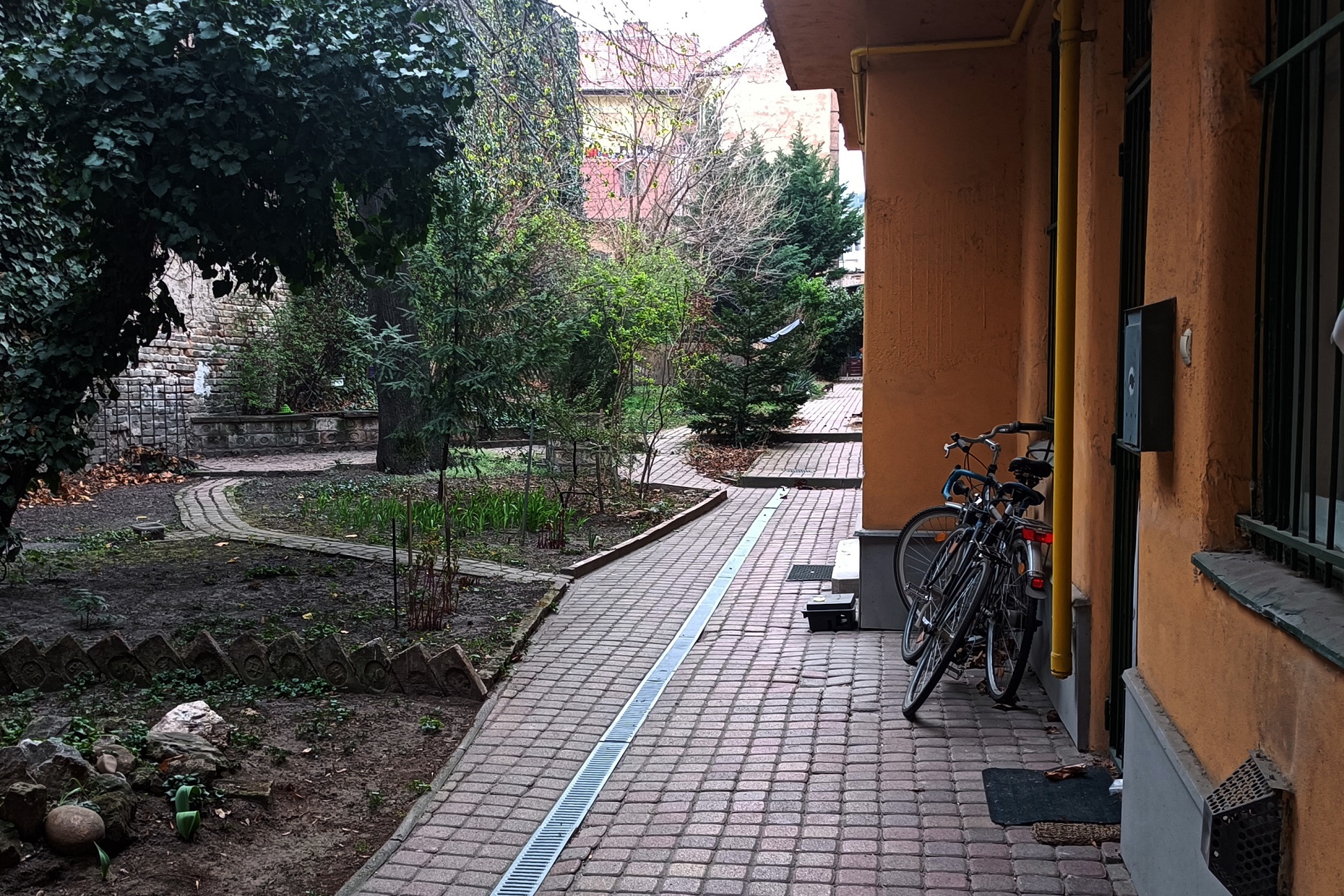Community participation in the provision of affordable and sustainable housing | discussing inclusion/exclusion
Posted on 05-04-2022
The third RE-DWELL network-wide activity took place in Budapest, at the Centre for Social Sciences. Each one of the network activities falls under a specific thematic, indicating where the focus of each of our common activities would be. The first two - the Lisbon workshop and the Nicosia summer school-, were revolving around the area of ‘design, planning, and building’ while the next two - Budapest's workshop and the upcoming Valencia summer school- will focus on ‘community participation’.
Community participation in housing provision is pursued by communities eager to build housing that fits their needs, values, and desires. This can manifest itself in material terms, understanding housing as a physical space that should meet economic demands, long-term affordability, or spatial configurations that address the needs of their dwellers. Parallelly, through the active participation of the communities, broader concepts are also being addressed, such as environmental and social sustainability. The entanglement of those two concepts has to be defined by each community, encompassing their habits, practices, and modes of living and having as a final aim their individual and collective wellbeing.
We participated in a roundtable about “Community participation in the provision of affordable and sustainable housing” with experts from the field, Jenny Pickerill, professor of environmental geography and head of the department of geography at the University of Sheffield, and Richard Lang, professor of social enterprise and innovative regions at Bertha von Suttner University in Austria. The discussion revolved around cooperative housing in UK and Austria. Both countries are considered to be at the forefront in the provision of cooperative housing in Europe. However, they are different contexts of study, in terms of socio-cultural, political, and legal frameworks. Austria appears to have a more supportive institutional environment compared to the UK, coming from a long tradition of accommodating different groups, such as immigrants, into the cooperative housing schemes.
A central issue within this field is the question of the inclusion of cooperative housing schemes and their institutionalisation. Are these models accessible for people with fewer resources (economic, social, cultural) or are they reproducing the existing power configurations (economic and social status), silencing inequalities, and excluding certain social groups? To arrive at conclusions, it is important to understand how cooperative housing emerges in different contexts, which are the objectives and motivations behind it? Who ends up living in these places? and most importantly, do they finally provide an affordable alternative to housing for the local population of a specific area?
We encounter two broad categories for the creation of cooperative housing; the first refers to self-initiated groups that make decisions based on consensus, adopting often self-built approaches. The initial group could either have a ‘closed’ composition, maintaining its homogeneity, or reach out to the local population for joining the cooperative. However, a recurring question is: does anyone have the same right to access these groups of housing co-creation? Another question is if different groups receive the same recognition, institutional support, and security regarding their housing conditions, or if when entering the institutional framework certain groups are being favoured at the expense of others.
The second category refers to the promotion of cooperative housing that is being intermediated by organisations, such as housing or non-profit associations. These foster and facilitate communities to actively participate in forming and self-managing their housing. The intermediate organisations facilitate the processes by supporting the groups in diverse ways, such as finding potential members, providing legal and managerial support, etc. Thus, understanding whose voices are been heard each time in both trajectories of cooperative housing provision is a way to assess how inclusive they are.
Typically, members of the cooperative groups often appear to have a certain social, cultural, and economic status; groups of white, well-educated people with social capital and skills. Many groups struggle with that as they are socially conscious and want to reconfigure the power dynamics and inequalities in accessing housing. However, as the challenges of social justice are more complex to address, many cooperative projects end up focusing on environmental goals that are easier to meet than the social and economic inequalities. Therefore, it is important to realize: Who is excluded from cooperative housing processes? Who has been excluded intentionally or unintentionally?
The term reflexivity was often mentioned in the discussion, referring to collective practices of self-reflection about the participants' positionalities, authorities, verbalisation skills, experience, and values. As people often come with different resources in the process of co-creating cooperative housing, a way to take this into account is to create various levels of participation, making it less demanding for people that do not have the same time or economic capacity. In this way, the collaboration factor would be present, being aware of the importance of redistributing knowledge and resources.

